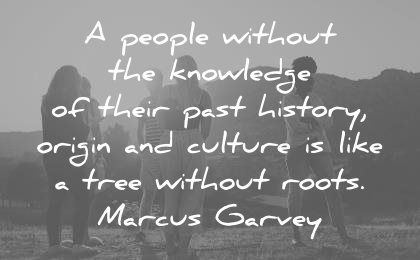History Quotes

History is not merely a record of past events; it is the collective memory of humanity, a repository of experiences, triumphs, and tragedies that shape our present and influence our future. From ancient civilizations to modern societies, history serves as a beacon, guiding us through the complexities of the human journey. Through the words of renowned thinkers, scholars, and leaders, we gain insight into the significance of history and its enduring relevance in our lives.
Napoleon Bonaparte
“History is a set of lies agreed upon.”
Napoleon Bonaparte was a French military leader and emperor who rose to prominence during the French Revolution, reshaping Europe in the early 19th century.
George Santayana
“Those who cannot remember the past are condemned to repeat it.”
George Santayana was a Spanish-American philosopher, essayist, and novelist known for his works on aesthetics, ethics, and metaphysics.
Karl Marx
“History repeats itself, first as tragedy, second as farce.”
Karl Marx was a German philosopher, economist, and revolutionary socialist whose ideas laid the foundation for modern communism and influenced generations of thinkers.
Georg Wilhelm Friedrich Hegel
“The only thing we learn from history is that we learn nothing from history.”
Georg Wilhelm Friedrich Hegel was a German philosopher and one of the founding figures of German idealism, with his dialectical method significantly impacting philosophy and historical thought.
Winston Churchill
“History is written by the victors.”
Winston Churchill was a British statesman and Prime Minister during World War II, whose leadership was crucial to the Allied victory over Nazi Germany.
Winston Churchill
“The farther backward you can look, the farther forward you are likely to see.”
Winston Churchill, in addition to his political career, was a prolific writer and orator, known for his insights on history and governance.
Maya Angelou
“History, despite its wrenching pain, cannot be unlived, but if faced with courage, need not be lived again.”
Maya Angelou was an American poet, memoirist, and civil rights activist whose literary works explored themes of identity, race, and resilience.
Napoleon Bonaparte
“History is the version of past events that people have decided to agree upon.”
Napoleon Bonaparte’s influence extended beyond the battlefield to shaping historical narratives during his reign as Emperor of France.
Martin Luther King Jr.
“We are not makers of history. We are made by history.”
Martin Luther King Jr. was an American Baptist minister and leader in the civil rights movement, advocating for nonviolent protest and racial equality.
Cicero
“History is the witness that testifies to the passing of time; it illumines reality, vitalizes memory, provides guidance in daily life and brings us tidings of antiquity.”
Cicero was a Roman statesman, orator, and philosopher whose writings on politics, ethics, and rhetoric remain influential to this day.
Thomas Carlyle
“The history of the world is but the biography of great men.”
Thomas Carlyle, a Scottish philosopher, historian, and essayist, emphasized the role of individuals in shaping historical events.
Norman Cousins
“History is a vast early warning system.”
Norman Cousins, an American political journalist and peace advocate, addressed issues of international relations and nuclear disarmament through his writings.
Lord Acton
“History is not a burden on the memory but an illumination of the soul.”
Lord Acton, a British historian and politician, is best known for his insight that “Power tends to corrupt, and absolute power corrupts absolutely.”
Ernest Renan
“The history of the past interests us only insofar as it illuminates the history of the present.”
Ernest Renan, a French philosopher and historian, explored the intersection of religion, culture, and national identity in his scholarly works.
Alexander Herzen
“History is the autobiography of a madman.”
Alexander Herzen, a Russian writer and thinker, critiqued autocracy and advocated for social reform, contributing to the rise of Russian liberalism in the 19th century.
George Orwell
“The most effective way to destroy people is to deny and obliterate their own understanding of their history.”
George Orwell, an English novelist and critic, is renowned for his works such as “1984” and “Animal Farm,” which explore themes of totalitarianism and political oppression.
Percy Bysshe Shelley
“History is a cyclic poem written by time upon the memories of man.”
Percy Bysshe Shelley, an English Romantic poet, celebrated the beauty of nature and the power of human imagination through his lyrical verses.
Oscar Wilde
“History is the present. That’s why every generation writes it anew.”
Oscar Wilde, an Irish poet and playwright, challenged Victorian norms and conventions with his wit and aestheticism.
Thomas Carlyle
“History is the essence of innumerable biographies.”
Thomas Carlyle, whose works emphasized the role of great individuals in shaping historical events, left a lasting impact on historical scholarship.
William Faulkner
“The past is never dead. It’s not even past.”
William Faulkner, an American writer and Nobel laureate, explored the complexities of Southern history and identity in his novels.
- Adam Kluger Quotes - September 8, 2024
- Adam Hicks Quotes - September 7, 2024
- Adam Grant Quotes - September 7, 2024
